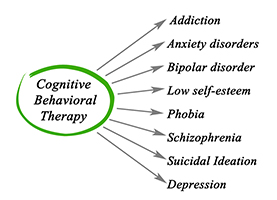 Stress, anxiety and depression have often been considered to lead to difficulty sleeping.
Stress, anxiety and depression have often been considered to lead to difficulty sleeping.
But what if it was the other way around? What if the sleeplessness was actually the root of those troubles?
British researchers put this theory to the test and published the results in Lancet Psychiatry. What they discovered may surprise you.
They recruited 3,755 insomniac students from 26 British universities with an average age of 25, all experiencing some level of stress, anxiety or depression.
The students were randomly divided into two groups. Half received 6, 20-minute online sessions of cognitive behavioral therapy and the other half received no treatment but just advice for countering their insomnia.
The program ran for 10 weeks, and the students’ mental health was assessed via online questionnaires before commencement of the therapy, at week three, week 10, and at week 22, (12 weeks after the program ended).
Compared to the students receiving only the advice, the students who received the cognitive behavioral therapy showed a large improvement with sleep.
They also experienced a reduction in their depression, anxiety, and nightmares, and an improvement in general psychological well-being and work and home functioning.
Up to now, insomnia treatment has not been used as part of a treatment program for depression, anxiety, and other mental health problems, as it has been seen as a symptom of these conditions, and not as a cause.
This study suggests that it is time to treat the insomnia of people who suffer from psychological disorders, because it seems to be a contributing factor to these disorders.

 Overcoming IBD
Overcoming IBD Multiple Sclerosis
Multiple Sclerosis Banishing Bronchitis
Banishing Bronchitis Gum Disease Gone
Gum Disease Gone Overcoming Onychomycosis
Overcoming Onychomycosis Neuropathy No More
Neuropathy No More The Prostate Protocol
The Prostate Protocol Brain Booster
Brain Booster
 Ironbound
Ironbound
 Solution for Shingles
Solution for Shingles
 The Bone Density Solution
The Bone Density Solution
 The Ultimate Healing Protocol
The Ultimate Healing Protocol
 The Parkinson's Protocol
The Parkinson's Protocol
 The Chronic Kidney Disease Solution
The Chronic Kidney Disease Solution
 Overthrowing Anxiety
Overthrowing Anxiety The Fatty Liver Solution
The Fatty Liver Solution The Hypothyroidism Solution
The Hypothyroidism Solution
 The End of Gout
The End of Gout The Blood Pressure Program
The Blood Pressure Program
 The Oxigized Cholesterol Strategy
The Oxigized Cholesterol Strategy
 Stop Snoring And Sleep Apnea Program
Stop Snoring And Sleep Apnea Program
 The Arthritis Strategy
The Arthritis Strategy The Vertigo & Dizziness Program
The Vertigo & Dizziness Program The 3-Step Diabetes Strategy
The 3-Step Diabetes Strategy Hemorrhoids Healing Protocol
Hemorrhoids Healing Protocol The Erectile Dysfunction Master
The Erectile Dysfunction Master Weight Loss Breeze
Weight Loss Breeze The IBS Program
The IBS Program The Insomnia Program
The Insomnia Program The Migraine and Headache Program
The Migraine and Headache Program The Neck Pain Solution
The Neck Pain Solution The Menopause Solution
The Menopause Solution The Ejaculation Master
The Ejaculation Master The TMJ Solution
The TMJ Solution The Acid Reflux Solution
The Acid Reflux Solution The Fibromyalgia Solution
The Fibromyalgia Solution The Psoriasis Strategy
The Psoriasis Strategy